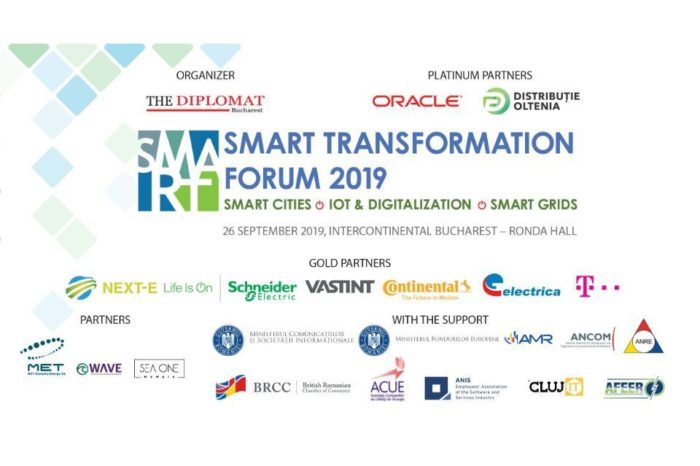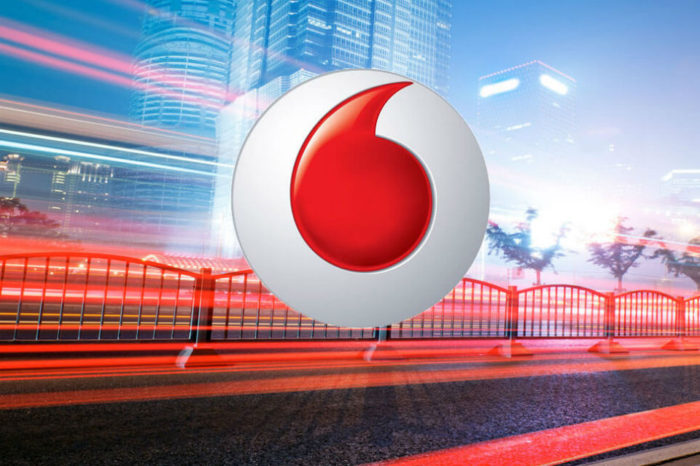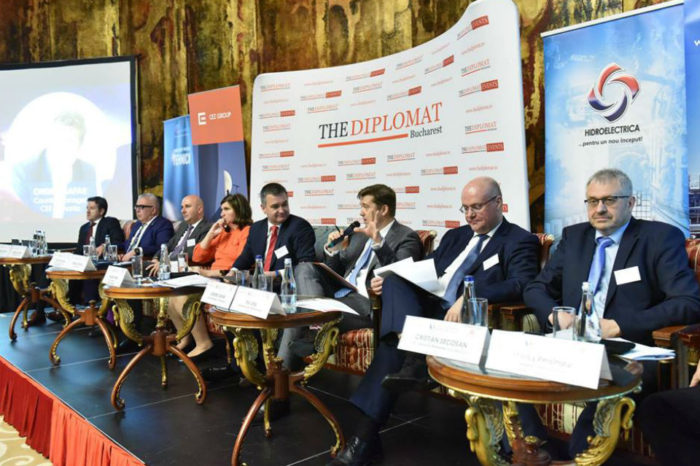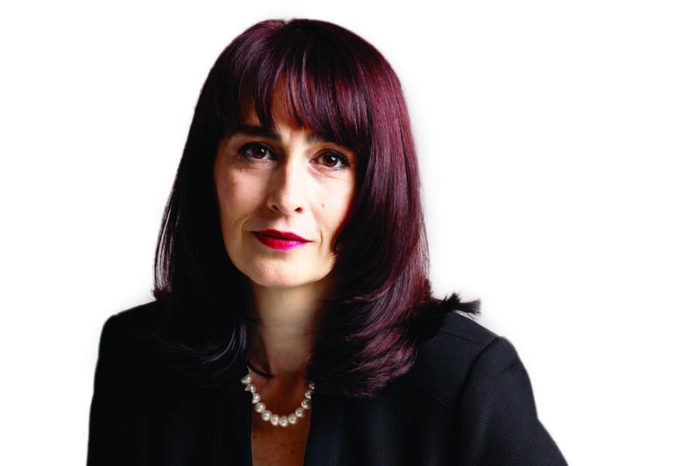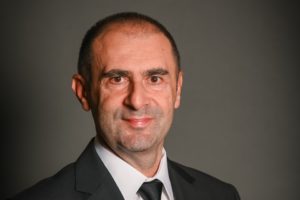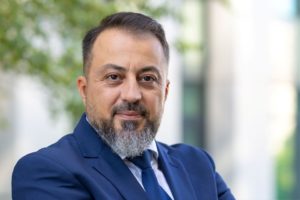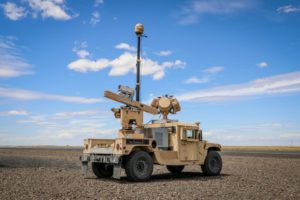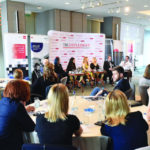Learning and development is all about people
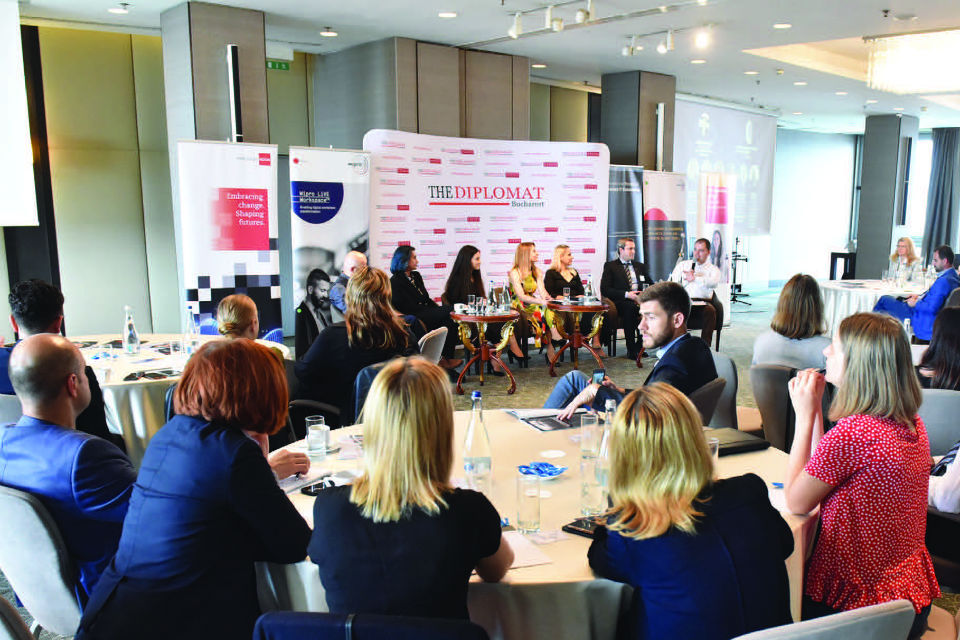
On June 4th, the third edition of Learning and Development Conference took place at Bucharest, at Intercontinental Hotel and this year brought together the human resources professionals to discuss and discover new tools and programs designed to assist businesses in supporting employee development.
The series of L&D events is dedicated to professionals in training and development, learning and performance and anyone charged with increasing workplace performance and the main goal is to focus on the exchange of relevant trends and research results as well as the presentation of practical experiences gained while developing, designing and testing elements of advanced corporate learning
This year’s event has been enabled with the support of Diamond partner Wipro, Gold partners PwC, ACCA, Partner Selir, and associations ANIS, ClujIT, Wave Division and HRS Romania. The two sessions of L&D referred to the main aspects defining the learning and development processes within companies, the organizational cultural-exchange and the main enablers for doing so in the benefit of both the employees and business as well.
The host of the event was, for the second time in a row, Andrei Romanescu, Managing Director, Veeam Software.
The first session of the conference welcomed a highly experienced panel of managers from one of the leading companies in the business and academic field: Teodora Todoran, Strategic Leadership Development Europe, Wipro Limited, Denisa Panaite Casu, PwC’s Academy Manager, Alexia Lucia Gusa, Learning and Development Coordinator, Stefanini, Fabiana Puscas – Learning and Development Supervisor, Ford Romania, Andrei Mihai Craciun, the Head of Office for Innovation, Technological Transfer and Intellectual Property Office, West University of Timisoara, Sergiu Negut, Co-founder Fintech OS, Business Growth Consultant and Associated Dean with Maastricht School of Management in Romania
Changing mentalities in learning and development: From mandatory to willingness
The fast-paced world that we are living in, either it is about personal lives or business, asks for a stronger ability of adjustment and resilience in terms of change and updating to the new information. As Andrei Romanescu stated in the beginning of the conference, the world today is no longer the world of ten-years ago and this is a very short period of time when we refer to dramatic changes into a society. “Thirteen years ago, there was no Facebook, ten years ago, there was no Instagram, application that we consider today basics. This also applies to jobs typologies’ dynamic. There are jobs on the verge of being created, such as drone manager for instance. We already have jobs such as social media manager. Tesla, another example, appeared no longer than ten years ago and it already beat the 120-year historical brand Mercedes Benz in terms of sales in the US. We have devices generating face recognition, voice recognition, there are concepts that started to emerge in the medical dictionaries, such as the online and gaming dependence, concepts such as FOMO – Fear of Missing Out. We have personal assistants – Siri, to name just one – and all of these and much more is assisting us in everyday life and action.”
The work is changing also as philosophy, as stated during the event, there is a certain new perspective that welcomes the sharing and the common good for everyone, such as Uber in transportation or Airbnb in hospitality.
Also the time – since we have started with the reference of the fast-paced living – started to become a component that changes completely who we are now and how we communicate: Andrei Romanescu referred to the fact that if two decades ago, the studies showed that the necessary time to attract the attention of someone into a dialogue or information sharing was of 12 seconds. Now, this time shrank by 30 percent.
So, how prepared are we to adjust to the new world?
The L&D Conference first session offered multiple answers in the context of each panellist’s work experience and one conclusion emerged, above all: People change according the times, businesses change according the need of the people and the technology must be seen as an enabler in the entire equation, rather than the necessary evil.
The perspective of the entire society started to turn towards much higher aims compared to decades ago and Sergiu Negut, Co-founder Fintech OS, Business Growth Consultant and Associated Dean with Maastricht School of Management in Romania explained how: “What we have witnessed in the past five years, especially in the young work force department is a reversed Maslow pyramid. the priorities tend to be more spiritual, more civic and community oriented. If ten years ago, generations of people enrolled on the labour market prioritized the wages and the basic needs in everyday living, now, the society, the young people show a more profound orientation for their expectations. It has emerged in the common conscience of the society that we are living in a much broader village.”
However, changing mentalities is not such an easy job in the companies and Fabiana Puscas – Learning and Development Supervisor, Ford Romania thinks that the older generations and the more experienced employees struggle and even fail to adjust to the new technologies. “For some, the new technologies are very hard to be assimilated and learned. We have studied also the expectations and working behaviours of millennials and we understood the critical need to adjust, because the differences between generations are strong. There are cases in the company where a symbiosis is being created between generations but we need to address and adjust these gaps.” The facts show by 2020, four generations will be active in the same workplace and this is a real challenge for the business managers.
Teodora Todoran, Strategic Leadership Development Europe, Wipro Limited has faith in a work environment that enables the merging of young and the more experienced employees and the information flow within the company: “Compared to previous years and decades in the workforce, the young generation is more informed. They have updated information and the information is ready for them anywhere. In the companies, the difference is made by the personal interest in learning and development. We have different typologies of employees, some have worked before in the state-owned companies, some came from private sector. What matters most is their personal willingness to achieve information and knowledge, the passion to learn. We try not to define people from the perspective of age, that wouldn’t be fair and we also think that the difference among employees in terms of age is unnecessary.” In this context, in the opinion of Andrei Mihai Craciun, the Head of office for Innovation, Technological Transfer and Intellectual Property Office, West University of Timisoara, a company should provide the necessary environment for the employees to share and merge their knowledge and experience. “Everyone should have a specific role in the company and department and be aware and responsible of that role. It is fascinating when every piece if puzzle is at place, some people are good at research, some are good at implementing, some are good at validating or evaluating. It is very important in a company that the amount of information can be filtered and validated by professionals.”
According to Denisa Panaite Casu, PwC’s Academy Manager, the employees have to be trained on how they filter and select their information. At PwC, as described by Denisa, the company implemented a platform in which the employees access professional information regarding skills and competencies of their colleagues and peers. In a practical manner, an employee that needs to get into contact with a colleague that has strong abilities and knowledge in certain field, can have access and start an easy process of communication. “Practically, the learning management system has been updated to the learning environment,” Denisa Panaite Casu stated. “The technology assists them all the way on the process and the idea is to create a context and environment in which the employees can feel that they have access to information anytime. In the huge amount of information, they need to feel that they access quality and relevant information,” the PwC manager added.
The learning and development paradigm needs a facelift
The learning and development process in any company that plans to act according to the times is a continuous flow of information through all departments and the free exchange if knowledge. Alexia Lucia Gusa, Learning and Development Coordinator, Stefanini stated that the present presents to us a completely different team leader from several years ago. the process of knowledge exchange enablement within a company has to be easy and intuitive. “We need to make the processes and businesses more about people and the leader or the manager should not constrain the employees’ development according to its own potential. Otherwise, how can we spot the sparks into the crowd?” According to the manager, the companies need to create the proper space for trial and error experiences, “those experimental spaces where the employees feels safe to be wrong without judgment and punishment. also, with all the processes taking place into a company, we should not forget who the final beneficiary is and never lose the contact with it”.
The level of specialization in to strong and complex economy remains a priority for businesses and, in the same time, in order to be productive, the people need to grasp a profound understanding regarding the business objective, according to Sergiu Negut, Co-founder Fintech OS, Business Growth Consultant and Associated Dean with Maastricht School of Management in Romania. “We don’t’ thoughtfully consider every step of a process and we don’t think through the processes in general. Hence, we create a product that is abstract and distant to employees. the companies need to become more human-centric”
The companies need to become “more human” and their “humanity” is better tested when it comes to the learning and development processes in which the employees are invited or obliged to participate. As Denisa Panaite said, this depends on the type of climate created by leaders and managers that enable or restrict the knowledge sharing among the employees. “This friendly climate that invites everyone to openly share and reach a resolution without the fear of being judged has to be created in the companies”. That kind of climate is described by Teodora Todoran, Strategic Leadership Development Europe at Wipro, where the company enables the openness of hearing and simulating all kind of situations and processes that take place in to the company with the goal to reach a correct resolution in a space where the employees feel free to speak and think on their own terms and solutions, benefiting from a wider perspectives from their colleagues and peers.
The second session of Learning and Development Conference of this year aimed at revealing The Art and Practice of The Learning Organization. The discussion within this panel have been empowered by: Mihaela Robu, Business Development Manager ACCA, Razvan Dragoi, Chief Development Officer, Fan Courier, Corina Biholar, Head of Learning and Development la BRD -Groupe Societe Generale, Catalin Luchian, People Development Manager at eMag, Codruta Ilie, HR Development Lead, Medlife, Diana Bocsaru, Learning&Development Senior Manager Groupe Renault Romania
Let’s talk to the people first
Sadly, often, trainings and every process related to the learning and development in a company is perceived as a burden, an extra-task and a mandatory job by employees. How are the companies sweetening this process and convey the right message to their employees? In highly regulated companies such as the ones operating in banking and financing, changing the perception of employees is a challenge. According to Corina Biholar, Head of Learning and Development la BRD – Groupe Societe Generale, “the colleagues can perceive the trainings, either offline or e-learning sessions as a burden. they see it as a duty not a benefit. But if we manage to explain and offer them a friendly and intuitive e-learning solution, they change their perspective and the companies attract them more easily into this process. Offering certain certifications to the trainings is seen as a benefit and the employees understand its added-value component.”
The strong regulatory-component of the company has also been underlined by Mihaela Robu, Business Development Manager ACCA: “The addressability and applicability of learning and education depends on the type of organization. We are preparing professionals for a highly regulated field and the need to continuous updating and information sharing is continuous, is part of the job, maybe this is why the employees don’t perceive the trainings as something mandatory or extra-job. We apply the coaching, the mentoring and the learning by peers, which is fundamental. In organizations such as ours, we don’t even need to initiate the learning process, because this need is always present.”
For Diana Bocsaru, Learning&Development Senior Manager. Groupe Renault Romania, “the online battle is an ongoing process. We involve gamification, and we observed that the mandatory label on trainings is something that works against us. Even if the content of trainings hasn’t changed much, due to the fact the interface of e-learning platform changed, the employees started to access it more and more and we observe this trend closely. It is exactly like in the times of wealth, the people perceive what they are offered as a right and take it for granted. It is a good thing, because we are living in wealthy times in terms of access to information and knowledge sharing.”
For a company with a strong commercial component such as eMag, the secret lays in showing the employees the benefit and the added value of a training. “As a company you need to convey the message to employees on how useful the training is for them, what is the added value to their career and work experience. You need to create a cool experience so that they feel part of the process. Every leadership and training developed in a company should rely on the internal communication, that gives the tone of voice,” said Catalin Luchian, People Development Manager at eMag. According to the manager, the strategies regarding the development and changes of operations and process within a company should be firstly based on the need of employees, the ones who have the first contact with the work realities. It is possible, according to the eMag manager that the resolutions and the decision taken into a board meeting to not mirror the work realities and the current needs of employees. “The people must be empowered with the necessary space to create and voice their opinions and ideas. the training content should also be created and adjusted to their needs and each employee category,” Catalin Luchian added.
For another company where the human factor is fundamental, Fan Courier, the operational strategies target the efficiency of processes. Razvan Dragoi, Chief Development Officer, Fan Courier made an analysis and observed that the regulations and procedures that an employee working in logistics should learn are as much as 700 pages and a huge volume of information. So, the company managers thought on how van develop a much easier and in the same time efficient knowledge product that it is easier and more efficient for the employees in the operational department. The example can be generalized so that the companies can streamline and simplify the information flow and the trainings structure within a company. “In my experience, there is a strong need to rationalize, better structure and simplify the processes. Once we manage to do this, make it easier and intelligible for us, it can be replicated for each employee,” Razvan Dragoi added.
For the healthcare services company Medlife, the training system is dynamic as the sector itself. As explained by Codruta Ilie, HR Development Lead, the company is reinventing the learning processes, adjusting to the needs of the medical professionals working in the company. “We work with people that are always engaged in continuous learning and education process, due to the nature of their profession. We work online and offline and involve all kind of practices and training processes to attract them and engage in the training processes. It is more challenging in our field, because you have to convince a doctor that it is worth rescheduling the medical consultations and attend a training that is useful and offer an added-value,” said Codruta Ilie. The mentoring is also a daily basis practice at Medlife, because, acting in a highly practical field, doctors and nurses need a mentor to learn the necessary techniques, besides the necessary medical theory.
Reversed mentoring, cross-learning experiences, learning by peers, micro-learning, social-learning – tools to engagement
The biggest challenge of companies seems to be not the design of the right trainings and educational tools but to attract the employees into accessing them. According to Corina Biholar, Head of Learning and Development la BRD Societe Generale, the employee is the one that should decide on the types of trainings he should access. the company should provide a total transparency for the employee so he can be aware of the benefits of the training and learning process, to clearly respond to the questions: Why should I participate to this training and what is the benefit?” In this respect, the trainings need to address practical and useful matters. “The content-based aspects of the trainings are no longer in target; it is more important to address the learning and development products as experience creators and enablers. It is true that this kind of trainings are highly time-consuming but their impact is high on the work environment and employees,” said Corina Biholar. This kind of experience-based trainings have been conducted at Medlife, as described by Codruta Ilie: “We work extremely structured in Medlife. We use coaching, mentoring, personalized education solutions. the cool factor and the experience creator factor should be in focus. we conducted such training and experience-based sessions of improvisation at Medlife, based on different situation simulation and the results were great, with the medical professionals providing great valued insights.”
This year’s edition of Learning and Development Conference ended with the five trends selected by Andrei Romanescu to be the highlights of the event: the continuous learning – as organizational culture, customized content creation based on beneficiaries’ needs, the social learning and learning by peers processes, the micro-learning and the transfer of responsibility for the learning and development needs from managers and team leaders to the direct beneficiaries of these processes: the employees.
(From the print edition – by Magda Purice)



